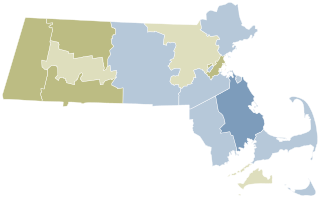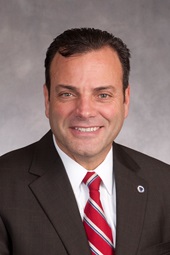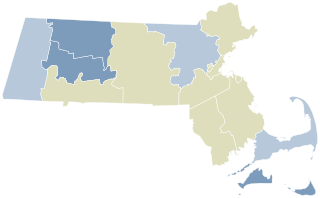
A popular initiative is a form of direct democracy by which a petition meeting certain hurdles can force a legal procedure on a proposition.

In California, a ballot proposition is a referendum or an initiative measure that is submitted to the electorate for a direct decision or direct vote. If passed, it can alter one or more of the articles of the Constitution of California, one or more of the 29 California Codes, or another law in the California Statutes by clarifying current or adding statute(s) or removing current statute(s).
In the politics of the United States, the process of initiatives and referendums allow citizens of many U.S. states to place legislation on the ballot for a referendum or popular vote, either enacting new legislation, or voting down existing legislation. Citizens, or an organization, might start a popular initiative to gather a predetermined number of signatures to qualify the measure for the ballot. The measure is placed on the ballot for the referendum, or actual vote.

The Marijuana Policy Project (MPP) is the largest organization working solely on marijuana policy reform in the United States in terms of its budget, number of members, and staff.
The Medical Injury Compensation Reform Act (MICRA) of 1975 was a statute enacted by the California Legislature in September 1975 (and signed into law by Governor Jerry Brown in September), which was intended to lower medical malpractice liability insurance premiums for healthcare providers in that state by decreasing their potential tort liability.

The Sensible Marijuana Policy Initiative, also known as Massachusetts Ballot Question 2, was an initiated state statute that replaced prior criminal penalties with new civil penalties on adults possessing an ounce or less of marijuana. The initiative appeared on the November 4, 2008, ballot in Massachusetts.

The State Income Tax Repeal, also known as Massachusetts Question 1, was one of the 2008 ballot measures that appeared on the November 4, 2008 ballot in the U.S. state of Massachusetts. Voters were asked whether or not they approved of the proposed measure which, if it had passed, would have ended the 5.3% income tax in Massachusetts on wages, interest, dividends and capital gains. Ultimately, Massachusetts voters defeated Question 1 by a wide margin, with approximately 70% opposed versus 30% in favor.
The Motor Vehicle Owners' Right to Repair Act, sometimes also referred to as Right to Repair, is a name for several related proposed bills in the United States Congress and several state legislatures which would require automobile manufacturers to provide the same information to independent repair shops as they do for dealer shops.

The No Sales Tax for Alcohol Question, also known as Question 1, was on the November 2, 2010 ballot in Massachusetts. The measure asked voters whether to repeal a sales tax on alcohol sales. The ballot measure for the 2010 ballot was added after the Massachusetts State Legislature increased the sales tax in the state from 5% to 6.25% and eliminated an exemption for alcohol sold in liquor stores.

Massachusetts Question 3, filed under the name, the 3 percent Sales Tax Relief Act, appears on the November 2, 2010 ballot in the state of Massachusetts as an initiative. The measure, if enacted by voters, would reduce the state sales tax rate from 6.25 to 3 percent. The measure was sponsored by the Alliance to Roll Back Taxes headed by Carla Howell. The measure would be enacted into a law 30 days after the election if approved by voters.
Direct democracy refers to decision making or direct vote a proposal, law, or political issue by the electorate, rather than being voted on by representatives in a state or local legislature or council.

Paul McMurtry is an American politician from Massachusetts. A Democrat, he has served in the Massachusetts House of Representatives since 2007. He represents the Eleventh Norfolk District, which includes his hometown of Dedham, Westwood, and the Eighth Precinct of Walpole.

The Massachusetts "Death with Dignity" Initiative, also known as Question 2, appeared on the November 6, 2012 general election ballot in the state of Massachusetts as an indirect initiated state statute to allow physician-assisted suicide. The measure was filed with the Massachusetts Attorney General and would establish, according to those who filed the measure, an "Act Relative to Death with Dignity". The petition number for the initiative was 11-12, and was filed by Michael Clarke as "An Initiative Petition for an Act Relative to Death with Dignity".

The Massachusetts Medical Marijuana Initiative, appeared as the third question on the state's 2012 ballot as an indirect initiated state statute. The measure allows cannabis to be used for medical purposes in the state. The initiative—backed by the American Civil Liberties Union, the Massachusetts Patient Advocacy Alliance, and the Committee for Compassionate Medicine—was filed with proponents turning in the required signatures to the Massachusetts Attorney General's office by the August 3, 2011 deadline. Those signatures were needed for the required ten qualified voters who submitted the original petition to put forward the full text of the law they want enacted. The initiative passed with support from 63% of state voters.

The Massachusetts Automatic Gas Tax Increase Repeal Initiative, Question 1 was on the November 4, 2014 statewide ballot. Approved by voters, the measure repeals a 2013 law that would automatically adjust gas taxes according to inflation, allowing for automatic annual increases in the state's gas tax.

An Act to Prevent Cruelty to Farm Animals, more commonly known as Question 3, was the third initiative on the 2016 Massachusetts ballot. The measure requires Massachusetts farmers to give chickens, pigs, and calves enough room to turn around, stand up, lie down, and fully extend their limbs. It also prohibits the sale of eggs or meat from animals raised in conditions that did not meet these standards.
Two ballot measures were certified for the November 3, 2020, general election in the state of Massachusetts. Multiple other ballot measures that were initiated by supporters did not meet requirements, thus will not appear on the ballot.
The 2020 Massachusetts general election was held on November 3, 2020, throughout Massachusetts. Primary elections were held on September 1, 2020.
Massachusetts has several forms of direct democracy, allowing for initiative and referendums at the state level and in many municipalities. The recall of public officials is also provided for in many municipalities.

The Massachusetts Right to Repair Initiative (2020), also known as Question 1, appeared on the Massachusetts 2020 general election ballot as an initiated state statute. It was approved by voters and the measure will update the state's right to repair laws to include electronic vehicle data. A similar Right to repair initiative appeared on the 2012 state ballot and passed with 86% of the vote.
















